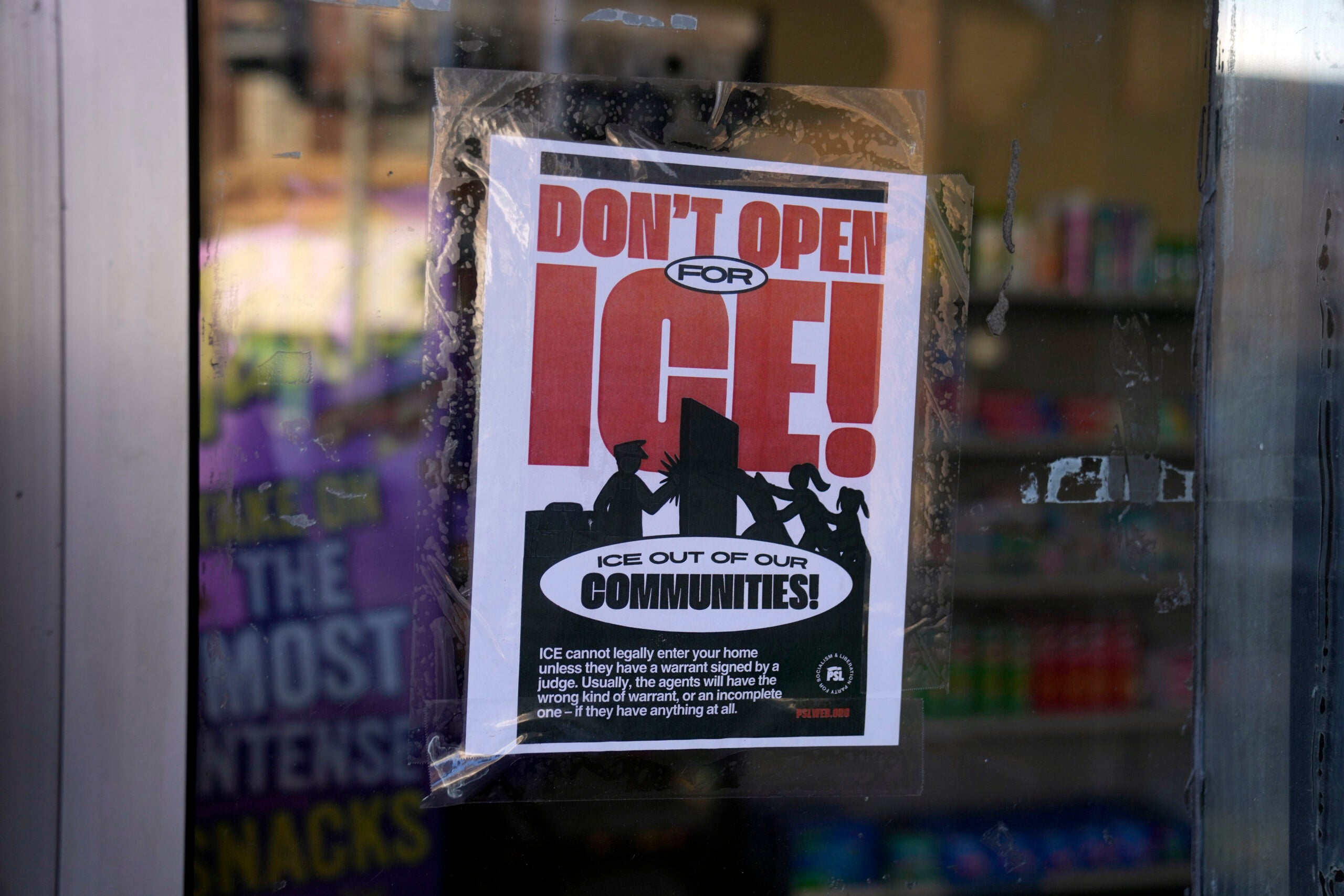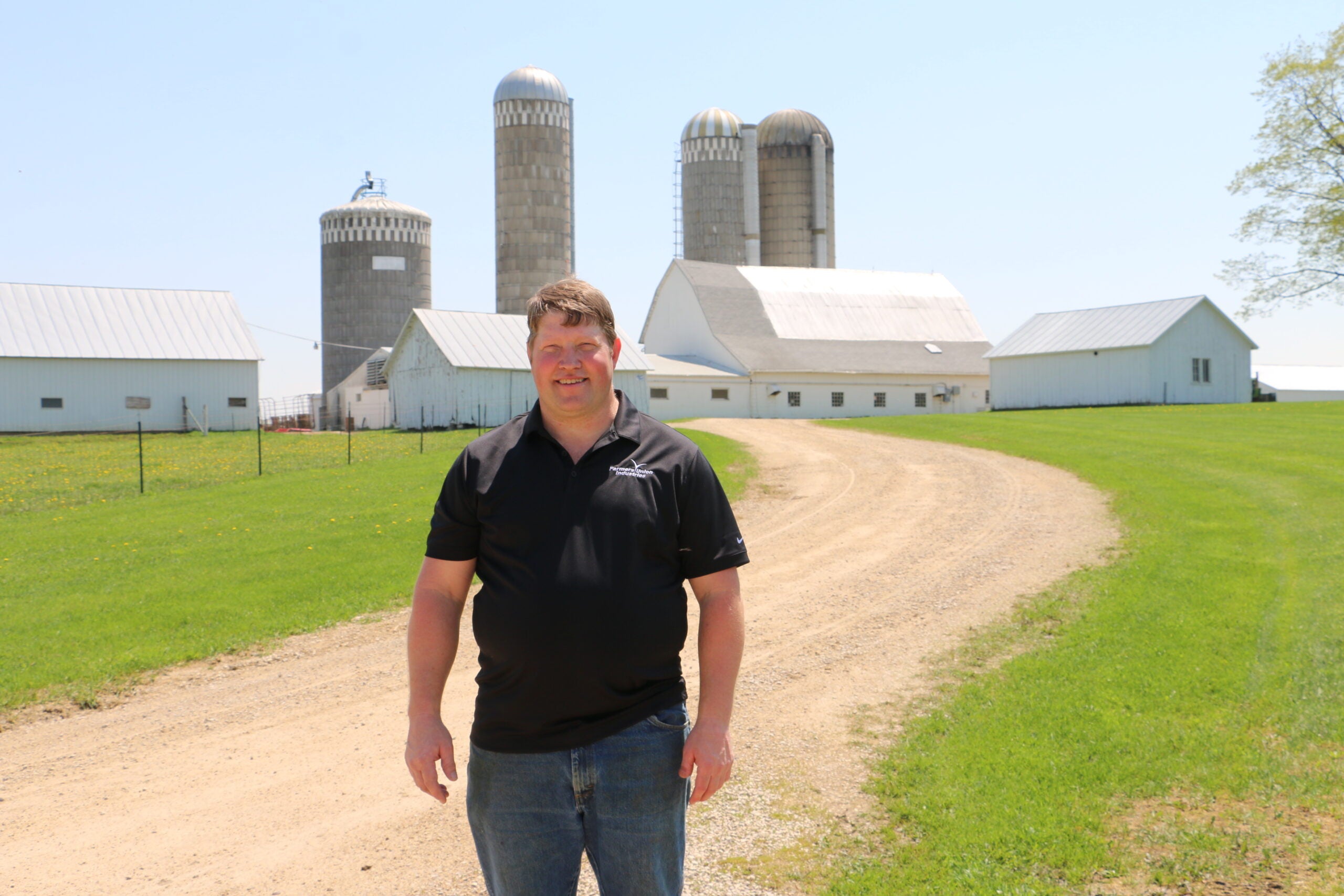President Donald Trump moved quickly to set in motion dozens of policy decisions during his first week in office. Many of the changes, including the threat of new tariffs and moves to deport people in the U.S. without legal status, have major implications for the U.S. agriculture industry.
Farm economists and industry experts weighed in on these impacts during the University of Wisconsin-Madison’s Wisconsin Agricultural Outlook Forum, an annual event for farm and food industry leaders in the state.
Chuck Nicholson, associate professor of agricultural and applied economics at UW-Madison, was one of the speakers.
News with a little more humanity
WPR’s “Wisconsin Today” newsletter keeps you connected to the state you love without feeling overwhelmed. No paywall. No agenda. No corporate filter.
“If we substantively implement some of the policy ideas that have been proposed and talked about prior to the inauguration, I think that will pose some pretty significant economic challenges for the farmers of Wisconsin and the U.S. generally,” Nicholson said.
Returning to retaliatory tariffs would hurt ag exports, supply chain
On the evening of his inauguration, Trump told reporters he is considering imposing 25 percent tariffs on products from Canada and Mexico starting Feb. 1. The president also said he plans to impose a 10 percent tariff on imported goods from China
During Trump’s first administration, similar tariffs were met with sweeping retaliation on U.S. farm goods, hurting prices and demand for products like soybeans, pork and dairy products.
Nicholson said during the forum that Mexico, Canada and China are the top buyers of U.S. dairy products.
Data from the U.S. Department of Agriculture shows exports to the three countries represented half of all U.S. dairy exports in 2023. The Wisconsin Department of Agriculture, Trade and Consumer Protection also reported Mexico, Canada and China were the top buyers of Wisconsin agriculture exports in 2023.
Nicholson said the U.S. dairy industry has seen export growth outside of these countries, particularly in Southeast Asia. But he said the positives from a new trade deal won’t be enough.
“It will be hard to offset all of the negative impacts if we have a pretty big impact on those three major players that are key export destinations,” he said.
Other experts said returning to a trade war like the one seen during the first Trump administration will have a negative impact on the broader agricultural supply chain. Cody Heller, CEO of dairy farm consulting firm Central Wisconsin Ag Services, said that includes products used by farmers and by processors and manufacturers.
“Tractors and machinery made in Mexico are going to be directly impacted by those tariffs,” Heller said at the forum. “Your packaging imports, all of that stuff has a micro economic impact.”
Immigration crackdown would have ‘dreadful’ consequences for farms, economy
The panel was asked about the potential impact of the Trump administration’s efforts to deport and detain people without legal status, as part of the president’s promised crackdown on immigration.
A UW-Madison report estimates that immigrants without legal status perform 70 percent of the labor on Wisconsin dairy farms.
Heller said at the forum that losing this part of the ag workforce would be “truly dreadful on a macroeconomic level we’ve never seen.” But he expressed doubt that the Trump administration will follow through on their promises to deport this population.
“Manufacturing, hospitality, construction, factory workers, all across the board… It would be so detrimental to our economy, our GDP would retract,” Heller said. “It’s not going to happen. It can’t happen.”
Kelly Wilfert, farm management specialist with UW-Madison’s Division of Extension, encouraged farmers and farm workers who are feeling apprehensive about deportation efforts to think about how they can prepare.
“There is value in knowledge, in understanding what are those processes that have to be undertaken, and in understanding what your rights are,” Wilfert said. “It may not solve all of the problems, but I do find that a good way to address that fear.”
She also said people can get help managing their stress through Extension and DATCP’s Wisconsin Farm Center.
Wisconsin Public Radio, © Copyright 2025, Board of Regents of the University of Wisconsin System and Wisconsin Educational Communications Board.






